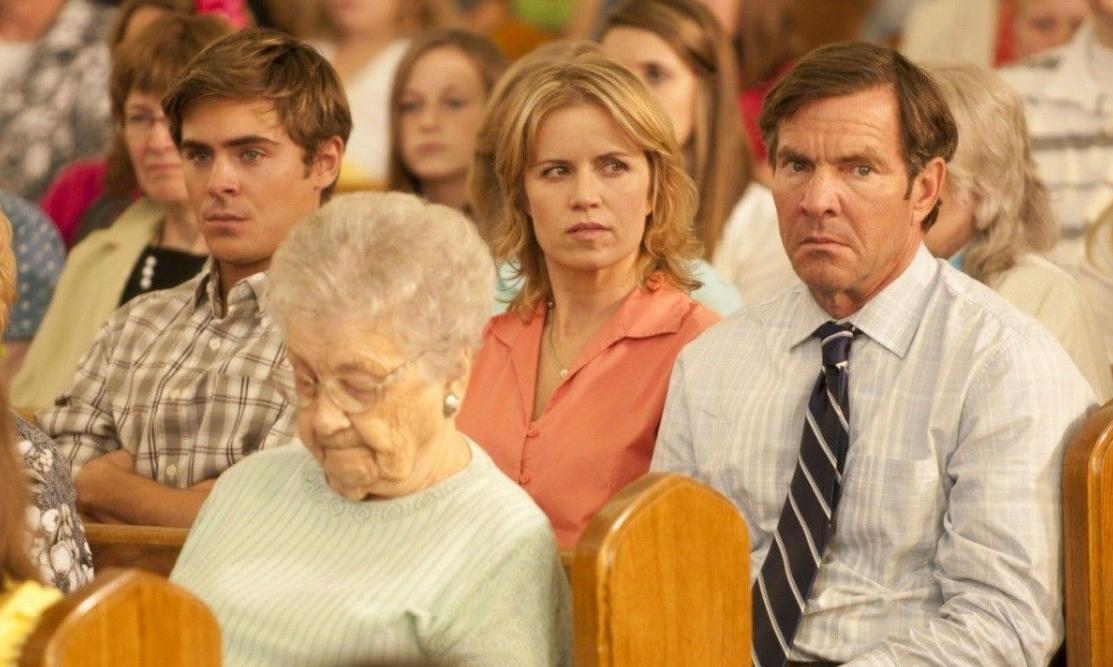 At Any Price
At Any Price
USA, 2012
Directed by Ramin Bahrani
Written by Hallie Elizabeth Newton, Ramin Bahrani
Established indie director Ramin Bahrani (Man Push Cart, Chop Shop and Goodbye Solo) sharply evokes layered complexity among character performances and ideologies in his new farming family drama, At Any Price. Co-written by Hallie Elizabeth Newton, the film tells the story of empire hungry Henry Whipple (Dennis Quaid) as he competes with bigger business, in a modern post-Monsanto farming community. Riddled by the failing interests of his rebellious race car driver son Dean (Zac Efron), Henry is pushed beyond ethical bounds as an unexpected crisis threatens the integrity of his family’s existence.
Brilliantly portrayed and largely misunderstood, Quaid plays Whipple with such self-awareness to camp and corniness, that his performance is largely seen as unnecessarily over-the-top and bombastic. Yet, it is in fact necessary. If Whipple is seen as an act, it’s because he is an act onto himself. After all, his true self is an egotistic power-hungry salesman who hides behind smiles and fake family values. If it feels Quaid is acting, it’s because he’s rightfully playing the role of the lowest common denominator actor. Whipple stands beside his wife Irene (Kim Dickens), yet feels no remorse in committing adultery with Meredith Crown (played by underutilized Heather Graham). Although church-going, Whipple is quick to hide murder. Modestly tongue in cheek, Whipple would rather hide his illegal activities of cleaning and re-selling GMO Liberty seeds to other farmers, than fessing up the truth. One might say that the scene where Whipple is his truest self, is at the very beginning. Attending the funeral of a local farmer, Whipple selfishly seeks the opportunity to buyout his 200 acres by approaching family with a wet heart filled with empty sympathy during the most untimeliness of meetings. After being berated back to his car, the son of the deceased farmer comes back to Whipple with a counteroffer so that monetary matters can be taken care of quickly. As Whipple looks back at Dean with his snake-like smirk, as if to say “Got’em,” his character never rings so genuine. Bravo Quaid.
On the other side of the father-son equation, Zefron continues to walk away from his teen idol days in strong roles such as that of frustrated Dean. Struggling to break free from his farming blood and into the life of speed and NASCAR, Zefron bubbles but stays at a simmer. Unlike his father, Dean plays it straight peaking with moments of friction. The two actors work with great rivaling chemistry, which is the fabric that guides the decisions set forth and progression of the film.
The film works solidly as two parts, although the arc itself seems rushed. At first, we see Whipple for who he really is while Dean is a vision of redemption. In a world filled with deception and corruption, Dean literally tries to escape from it as fast as he can. Perhaps a little too on the nose, but point well taken. Then, in a 15-minute moment of getting his shot of complete freedom away from his father, fate sets in and Dean doesn’t become the race car superstar he once dreamed of being. In fact, any notion of his prior dreams is omitted by the second half of the film as Dean absorbs the life of his father. Quite hastily, Dean becomes the farmer he once was resilient towards, both corrupt and unmoral. Dean cheats on his girlfriend Cadence (Maika Monroe) with the same woman his father once had an affair with. Again, a little too on the nose with the “like father like son” comparison, but subtlety isn’t the film’s strong suit. Although Whipple has a glimpse of clarity, taking notice of his son’s passions and even confessing to his own sins, the crossing of either character arcs ultimately wind up in the same direction – back to beginning where power and greed are the only things that matter.
In a way, the ending is wonderfully hypocritical. We get an aura of fluffy transformation. A deep connection between father and son that is even deeper tainted by lies and sin. We get a feeling of whimsy, as the film ends on a seemingly high note celebrating rural America and the comradery of fellow neighbors and customers. Yet the truth is still painted over by more smiles. Like father like son, corruption lives on. The cycle continues, greed expands, yet never dies.
The Tribeca Film Festival runs April 17-28. Visit the official website for more information.






